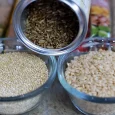
© 2023 House of Health. All rights reserved.
Web Design by Netbloom
Web Design by Netbloom
Constipation affects between 2% & 28% of adults (women more than men) but only about 1/3 seek health care for it. Around 5-30% of children suffer constipation – the wide range is due to various criteria used for diagnosis. Chronic constipation occurs in about one third of people who become constipated.
Constipation, as defined by the Rome Criteria, leads to significant impairment of quality of life, with implications that this is a serious condition in most people afflicted. Constipation may have other serious consequences; for example, an increased risk of colon cancer has been reported.
Constipation can be infrequent bowel movements, hard or dry stool, or difficulty in passing stool. Symptoms of constipation may include:
Any delay or disruption in the normal movement of stool through the bowel can lead to a variety of symptoms, including excessive, noisy, and/or smelly gas (flatulence), and discomfort. To understand constipation, it’s good to have an overview of some basics of the digestive process.

After you eat, your food is digested by chemical and mechanical processes in the stomach. Then it is called chyme.
After passing from the stomach into the small bowel, further enzymatic digestion happens to chyme. Nutrients are absorbed into the bloodstream as it moves down the narrow intestine.
As chyme passes through the stomach and intestine, it picks up cellular debris and other types of waste products. This, and any remaining undigested or indigestible material, then moves into the large bowel (also called the colon or large intestine).
The large bowel is the main place that bacteria act upon chyme. They enzymatically and fermentatively break down any proteins, starches, and some plant fibres that were not totally digested already.
In both the small and the large intestine, water is slowly absorbed into the bloodstream, so the chyme gradually gets thicker. A primary function of the large bowel is to absorb water from chyme, consolidating the material into stool (faeces). However, excessive water absorption can lead to dry and hard stool.
Chyme, and then faecal material, is moved along the length of the intestines by coordinated muscular contractions, passing the stool to then end of the large intestine (the sigmoid colon and the rectum), where it is stored until ready for excretion. Normal peristaltic contractions are essential for regular bowel movements.

When the rectum becomes distended with stool, stretch receptors on the rectal walls signal the brain that it’s time for a bowel movement. This sensation, that prompts the urge to empty the bowels, can pass quite quickly if the signal does not result in bowel emptying. It is peristaltic waves that propel the faeces toward the anus and out of the body. The final act involves opening of the anal canal, pelvic floor muscles get involved, and a coordinated action of two separate anal sphincters results in successful evacuation.
If the signal to defaecate is not felt or ignored, and emptying the bowels is delayed again and again, the faeces returns to the colon, where it becomes drier, more compacted and constipation is the result.
There is often no single causative factor, making constipation difficult to treat. However, there are many factors that influence the risk for becoming constipated. The most common are outlined below.
Having regular mealtimes aids regularity in the bowel. Therefore, a lack of routine can contribute to erratic patterns. Inadequate dietary fibre, and excessive use of laxatives can contribute to worsening of constipation over time.
Constipation may also be caused by weakness of the abdominal muscles, spasms of the large intestine, or more seriously, intestinal obstruction by tumours.
Temporary constipation most often occurs when there has been a change or interruption in one’s usual activities. This might be due to travel, reduction in usual exercise levels, or a change in eating or sleeping habits.
Having low thyroid function, such as Hashimoto’s’, or diabetes can contribute to constipation.
Having a stroke, head injury, or Parkinsons’ disease are examples of centrally mediated problems with bowel function – the messages don’t get through or get misinterpreted. Some medications including certain pain killers, antidepressants, and antispasmodics can interfere with normal bowel activity.

You have trillions of microorganisms living within you, and for the most part, they are working for you. Constantly. Until they aren’t – and then they can work against you.
Dysbiosis is the term used to refer to an imbalance in the composition and function of these organisms.
Dysbiosis can have various effects on gastrointestinal health, including contributing to constipation.
Here’s how dysbiosis may contribute to constipation:
It’s important to note that while dysbiosis can contribute to constipation, the relationship between gut microbiota and gastrointestinal health is complex, and the specific mechanisms may vary from person to person.
Constipation can impact people physically, psychologically, and socially. Here are some examples of how this manifests:
You should see a doctor without delay if you have constipation AND any of the following symptoms:
Bleeding from your rectum or blood in your stool
Constant pain in your abdomen
Inability to pass gas
Vomiting
Fever
Lower back pain
Losing weight without trying

If you are constipated and looking for relief, there are several steps you can take to alleviate the condition.
Check out these tips on what to do if you’re constipated:
Add fibre-rich foods to your diet. Fibre helps soften the stool and promote regular bowel movements. Foods high in fibre include fruits, vegetables, whole grains, beans, and legumes.
If increasing your dietary fibre causes digestive distress, please drop in to our dedicated constipation clinic, open Tuesdays 10:00am – 2:30 pm and Wednesdays 10:00am – 5:00pm (no appointment necessary). Appointments required outside these times.
Drinking ample fluid over the course of the day is essential for maintaining soft and easily passable stools. Aim for at about 6-8 cups (1.5 – 2.0L) of water daily.
As inherent signals for colonic contractions are stimulated by eating a meal, establishing a regular eating schedule with healthy, nutritionally balanced meals can help regulate your body’s natural bowel movements.
Engage in regular physical activity. Exercise supports good abdominal muscle tone and stimulates the muscles of the digestive tract. Even a daily brisk walk can help move stool through the intestines.

Exercise aids normal digestive function.
Pay attention to your body’s natural signals. When you feel the urge to have a bowel movement, don’t delay or ignore it. Responding promptly can help prevent constipation. If these signals are occurring too often, and evacuation is ineffective, please visit our dedicated constipation clinic.
Processed foods such as fast food, sugary snacks, baked goods, white flour, pasta, and white rice are inherently low in fibre. Reducing your consumption these low-fibre foods can improve gut function and reduce constipation.
Prunes and prune juice are natural laxatives and can be effective for relieving constipation. You can try eating a few prunes or drinking a glass of prune juice daily – but be aware that this carries a notable sugar load. If prunes increase your digestive distress, please visit our dedicated constipation clinic, open Tuesdays 10:00am – 2:30 pm and Wednesdays 10:00am – 5:00pm (no appointment necessary). Appointments required outside these times.
Some people find relief from natural remedies like psyllium husk or ground flaxseed. These can add bulk to the stool and improve bowel regularity. For personalised guidance on the use of these, visit our dedicated constipation clinic, open Tuesdays 10:00am – 2:30 pm and Wednesdays 10:00am – 5:00pm (no appointment necessary). Appointments required outside these times.
If you notice that certain foods, beverages, or dietary supplements consistently worsen your constipation, try to limit them until you have consulted with one of our team. Avoiding healthy food is not a recommended long-term strategy unless you are allergic to them or have other medical reasons such as coeliac disease. If you are avoiding food to control symptoms, we strongly advise you to consult with a gut-health expert.
It’s essential to address constipation promptly through lifestyle changes, dietary modifications, increased fluid intake, and, if necessary, supplements. Early intervention can help alleviate the impacts of constipation and improve overall well-being. We aim to provide long-term solution by determining the underlying cause and develop an appropriate treatment plan.
A range of treatment approaches for constipation are available, depending on the interplay of these various contributors. For example, if related to dysbiosis, dietary changes, specific probiotics, and/or prebiotics, and other interventions aimed at restoring a healthy balance of gut bacteria may be selected. Consulting with a gut health expert can help determine the most appropriate course of action.
Make an appointment to see one of our clinicians if constipation persists. Be cautious about using laxatives excessively, as they can lead to dependency and worsen constipation over time.





House of Health Ltd